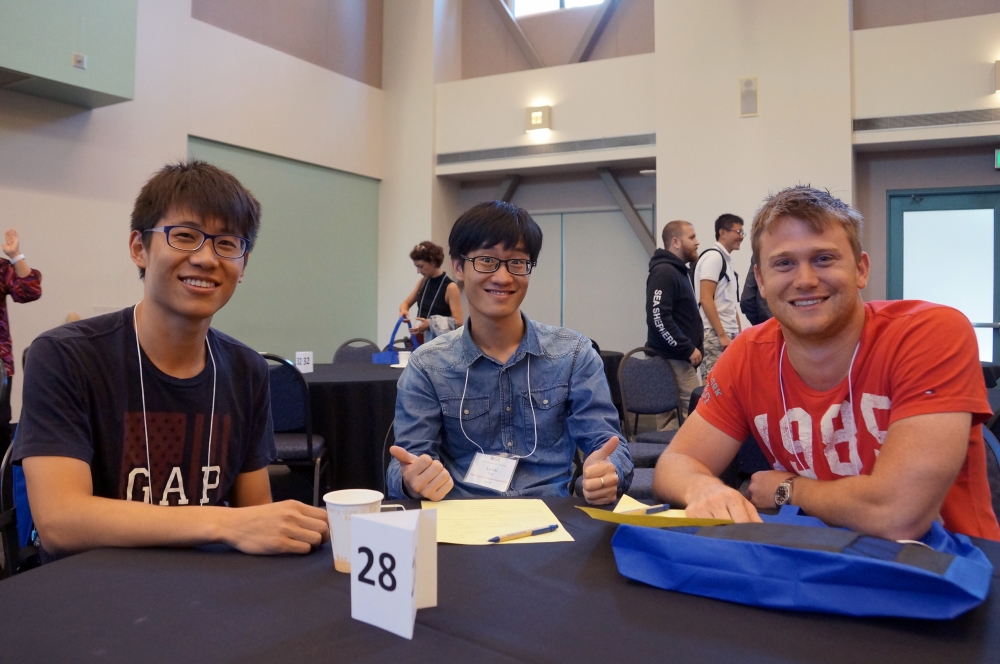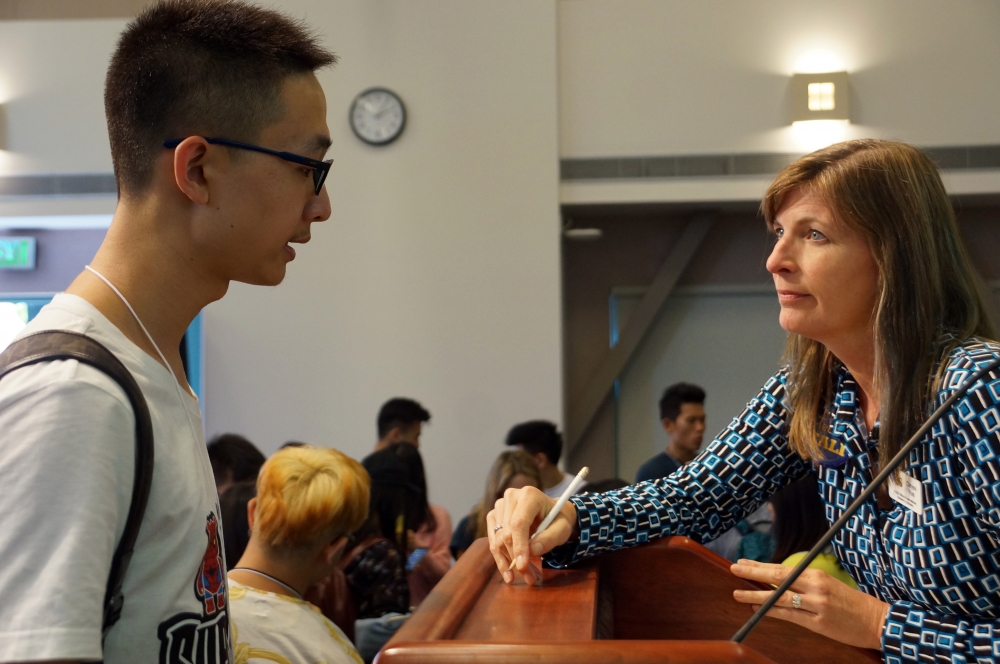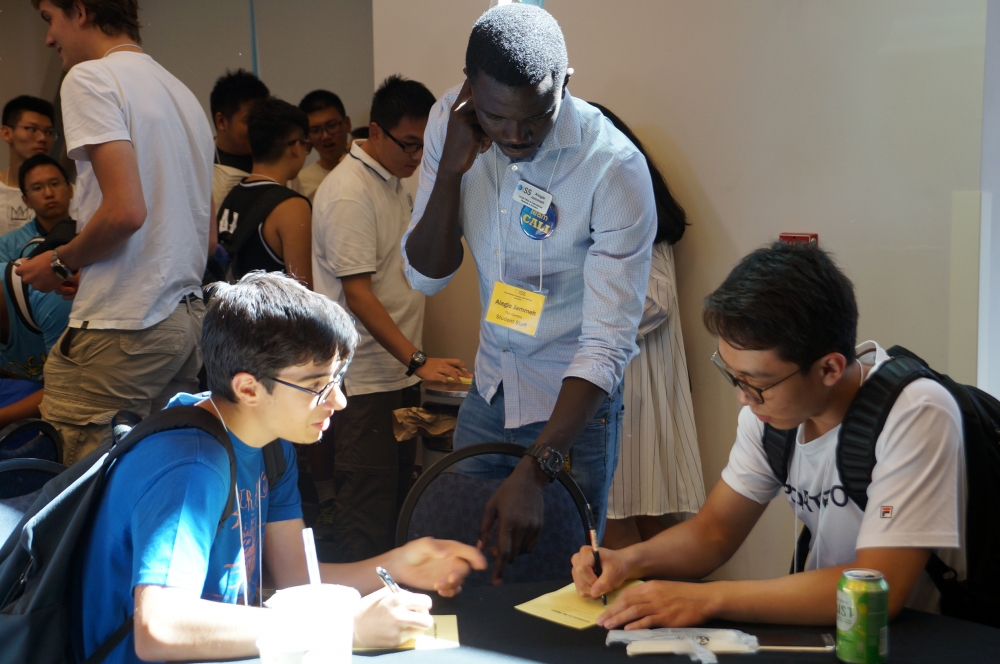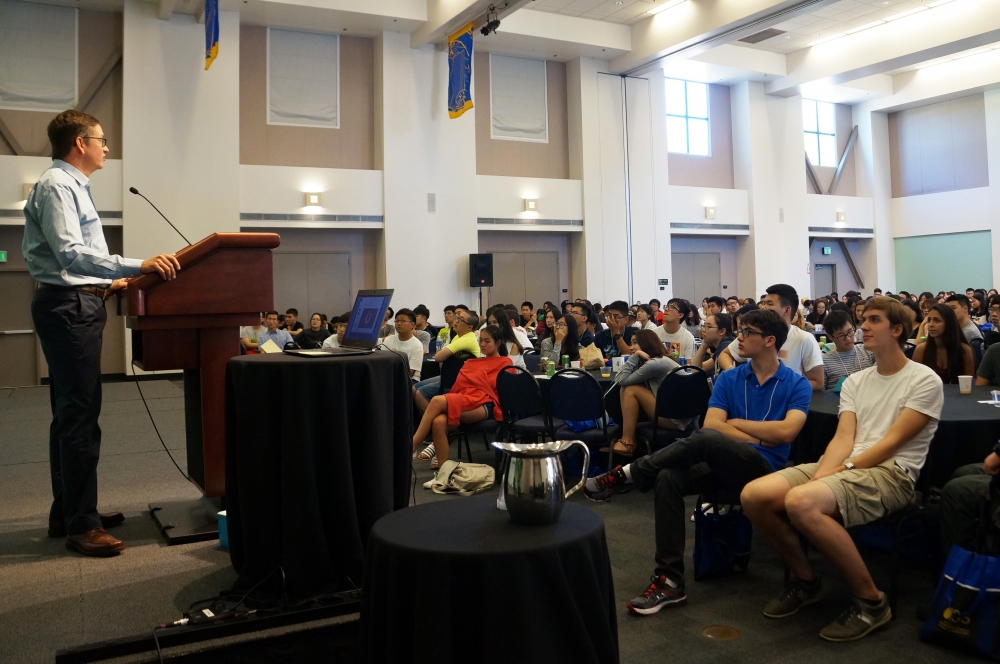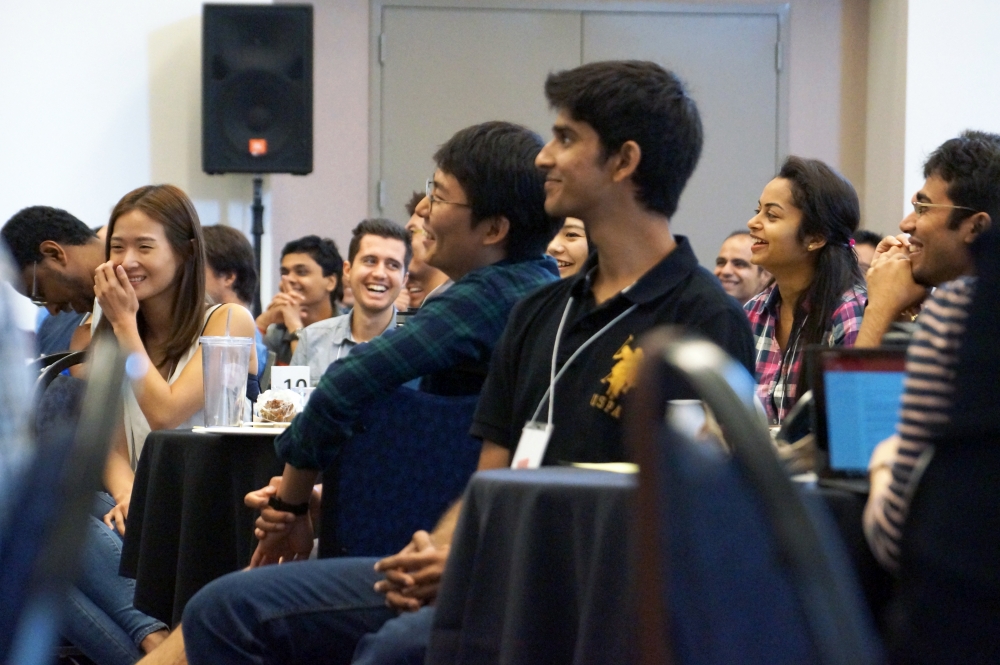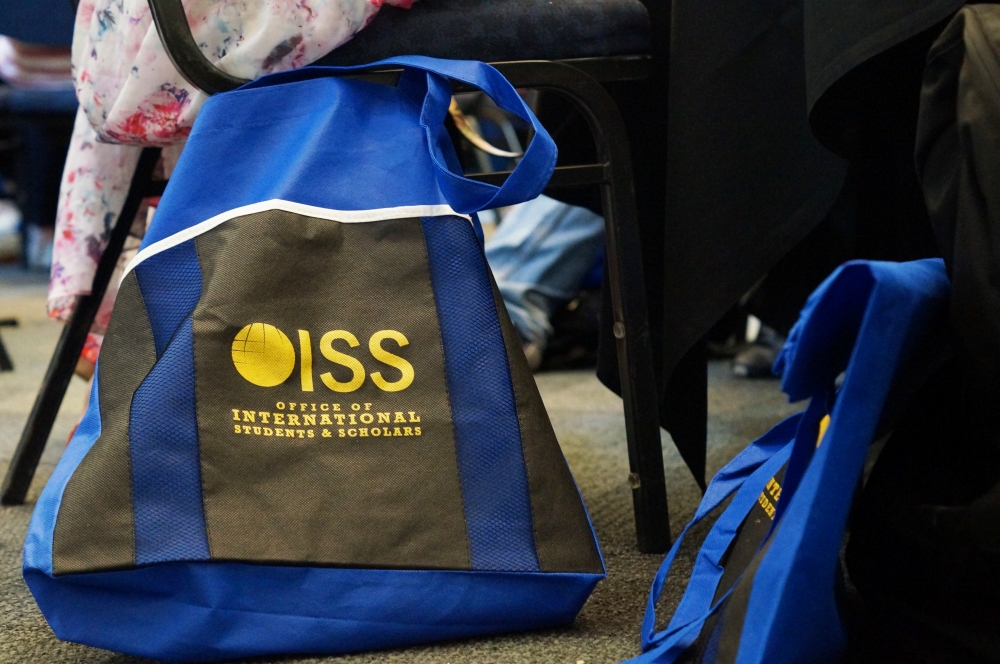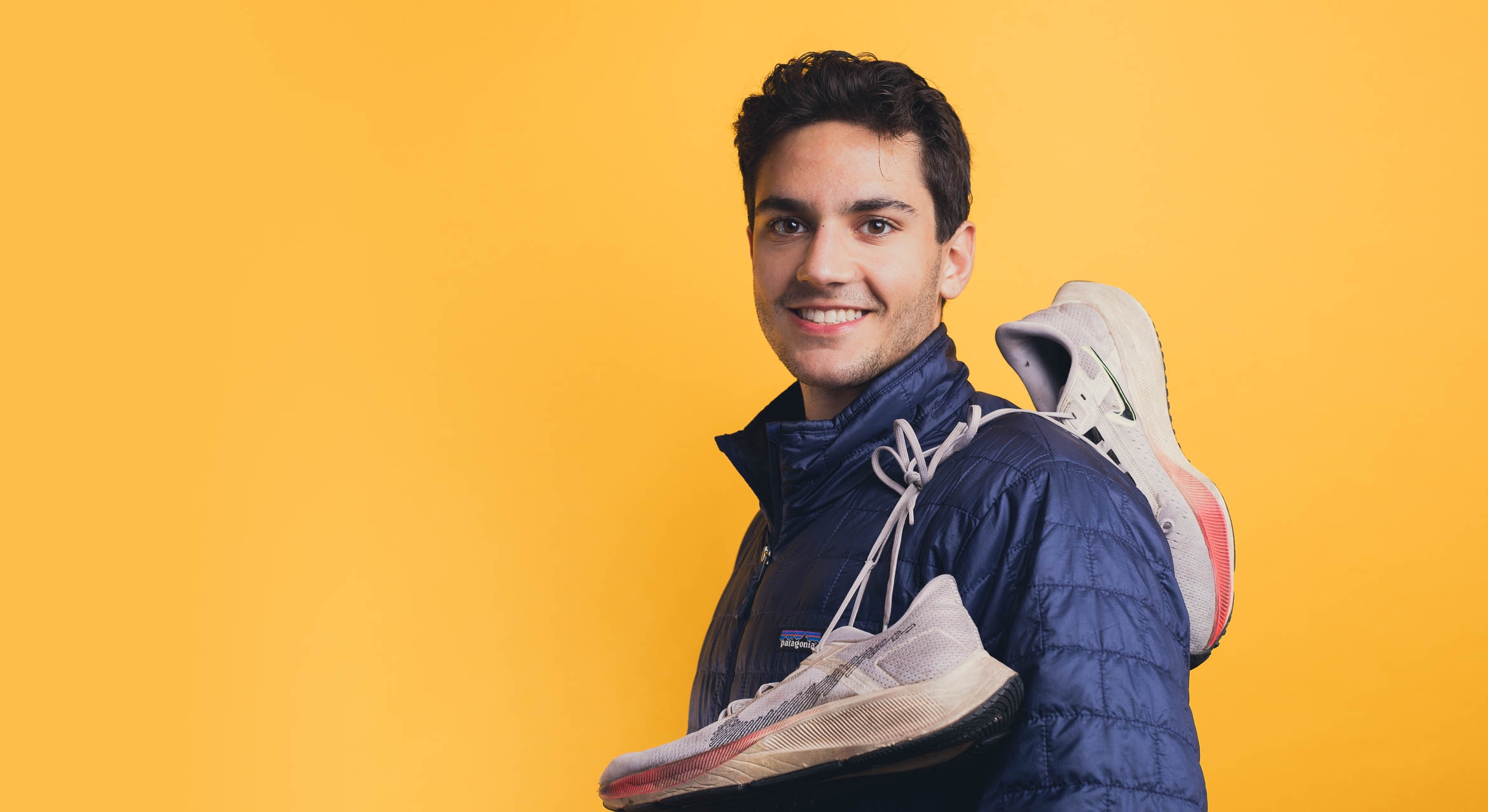The World Comes to UCSB
What do I do if I get sick? What if I want to change residences? Why do I have to document my sources so thoroughly? For most of us, questions like these aren’t cause for much concern, but for students who have just arrived in the U.S. to become students at UC Santa Barbara, they could mean the difference between success and failure.
Which is why the Office of International Students and Scholars (OISS) at UCSB engaged this year’s cohort of international students in a three-day Cultural Awareness, Laws, and Immigration orientation. The CALI training is designed to give incoming foreign students the tools they need to successfully manage their lives at UCSB.
“This orientation makes them aware of what to expect, and also what is expected of them,” said Simran Singh, OISS director. Consisting of lectures, breakout sessions and opportunities for campus tours and general mingling, the orientation was structured to provide useful information to all new international students, undergraduate and graduate, as well as those participating in Education Abroad programs. According to Singh, U.S. universities are federally mandated to provide foreign students with information and access to resources.
Consider, for example, the homesickness that inevitably strikes those who have been away from home for an extended period of time.
“Right now you’re in the honeymoon phase,” OISS F-1 student visa specialist Nicole Morgan told the packed crowd at Corwin Pavilion as she gave a talk on culture shock. The novelty inevitably wears off, she explained, and excitement could turn into stress, which, if left unchecked, could have serious consequences.
“Stress management is a big thing and they’re sometimes not aware of the resources that are available,” said OISS Academic Programs Coordinator and Marketing Director Chryss Yost, who moderated the orientations. “In a lot of countries, counseling, and just talking about stress and mental health are foreign concepts.” She noted that for students who might not have the benefit of family or a circle of friends nearby, the amount of stress they carry as they negotiate a new culture — on top of their studies — tends to be higher than that of other students.
In the same vein, other concepts that seem like no-brainers for people who’ve lived in this country for a while, such as citations in research work, might be new to incoming scholars, she added.
“In other countries, knowledge is more communal,” Yost said.
Aside from the academic, logistical and immigration-related information, attendees were most interested in the more intangible facets of UCSB life.
“I’d like to know how to fit in,” said St. Elmo Wilken, a grad student from South Africa, studying in the Department of Chemical Engineering. His new friends from China, Leilai Shao and Xin Wang, also engineering grad students, noted the same concern.
To assist Wilken, Shao, Wang and others with similar questions, Don Lubach, associate dean of first-year and graduate student initiatives was on hand to offer a primer on UCSB culture and the opportunities for engaging with it.
“One of the things that I urge you to do as a new student here is to close your books on occasion,” he said. “Walk up our local mountains, surf the incredible point breaks we have out here, swim in our wonderful ocean — don’t worry about the sharks,” he quipped, as he encouraged all in the room to embrace aspects of society, both American and international, that comprise UCSB culture.
“One of the things I’m most proud of is that our culture is not just one of American culture, but international culture,” he said. “And those of you who came from all over the place to be here will change UCSB, and you will make us better. So thank you for being part of our culture.”
